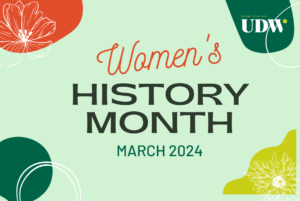
Women’s History Month 2024
March was Women’s History Month, and as a union made up mostly of women, every year we celebrate and uplift


March was Women’s History Month, and as a union made up mostly of women, every year we celebrate and uplift
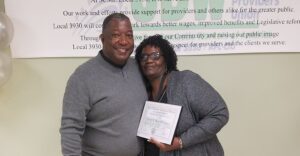
UDW member and activist Ms. Terry Walker-Dampier passed away earlier this month after a long battle with cancer. A UDW
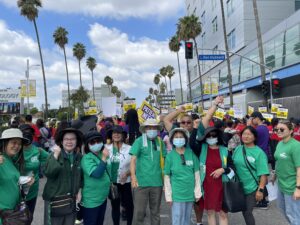
This Labor Day, UDW members from Riverside and Orange Counties rallied alongside union siblings from across Southern California to demand safe staffing at Kaiser Permanente hospitals.

SACRAMENTO – UDW/AFSCME Local 3930, a union representing over 171,000 home care workers and family child care providers in California,
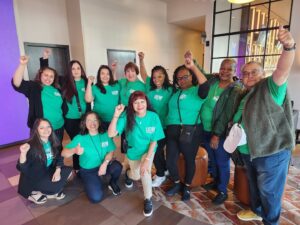
This week UDW leaders and members joined hundreds of care workers from across the country in D.C. at the first-ever

By Pablo Ros President Joe Biden this week signed a major executive order to improve care for working families and support care

Author: Astrid Zuniga My son, Manny, is the reason I get up every morning determined to fight for people with
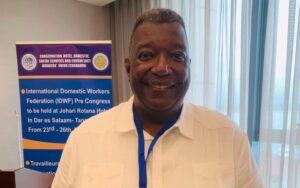
As home care workers and family child care providers, there is one thing that unites us – we are domestic

BY JANICE ROTHSTEIN BAKERSFIELD, Calif.—In between the historic storms directly hitting this area of California, members of the Communist Party’s San

Members of the California Alliance for Retired Americans and supporters from across the state gathered in Bakersfield to demand Speaker

In 1989, Franklin Vermillion watched as a group of friends gathered around a booth at his local burger joint communicated

by Kate Wolffe A new bill proposed in the California legislature would allow in-home care workers to bargain with the

By Andrew Hardy Even though the event was unfortunately delayed, the 26th annual Martin Luther King, Jr. Unity March and Black

Los cuidadores a domicilio de California, una fuerza laboral históricamente mal pagada que atiende a una población que envejece rápidamente,
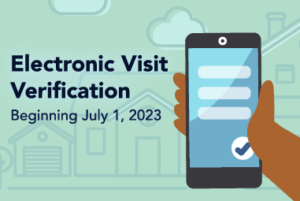
The California Department of Social Services (CDSS) will be implementing a change to the IHSS Electronic Visit Verification (EVV) system beginning July 1, 2023.
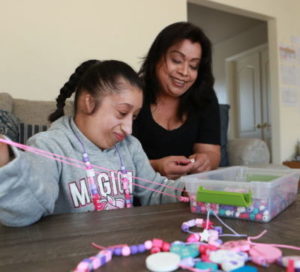
Magdalena Castillo cares for her 38-year-old daughter, Leticia, through the IHSS program. Leticia is the oldest of three siblings and
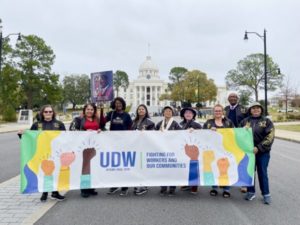
“Our experience in Montgomery was a clear reminder that we have come so far in our fight for our rights,

Union membership is powerful! The work we have done together to lift up caregiving over the past year made legislators recognize how valuable our work
UDW members elected by their peers to be delegates gathered in San Diego on June 7-9 for our 16th Constitutional
Over 6,000 IHSS home care providers in Butte County have gone without a new contract for five years—but we’ve gone
November is Provider Appreciation Month, and this year UDW is thanking caregivers for everything we do. UDW caregivers are not